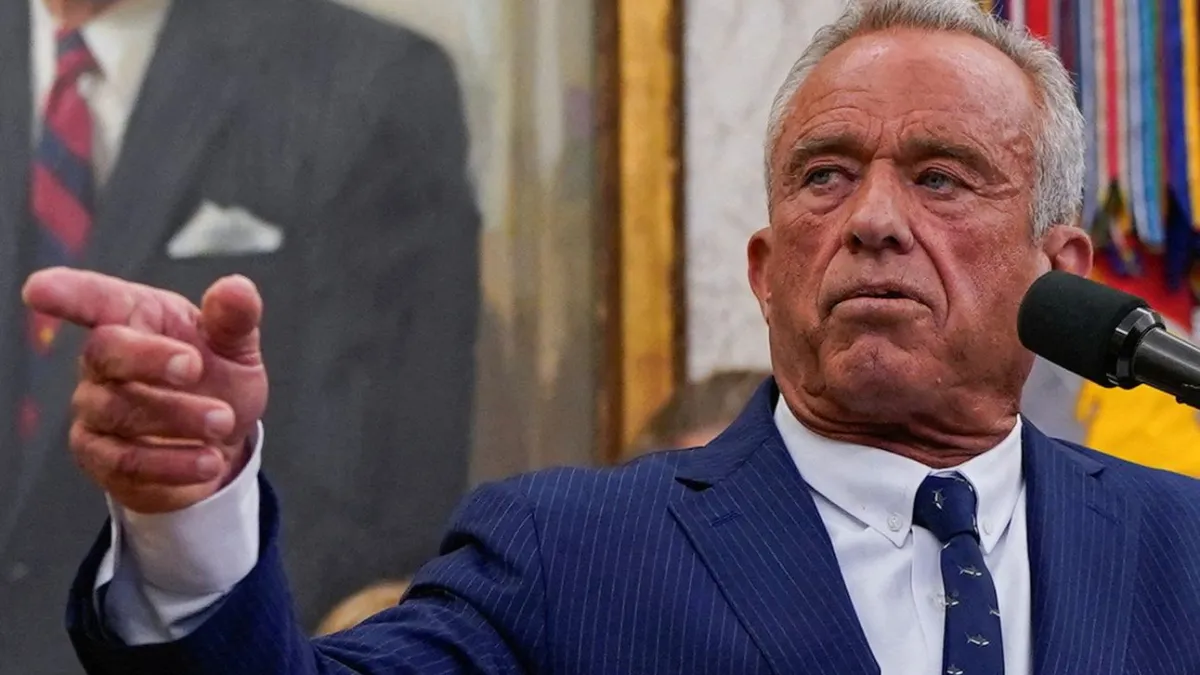
The U.S. Health and Human Services Department began to lay off thousands of workers Tuesday, part of a reorganization plan under Health Secretary Robert F. Kennedy Jr. that will eliminate roughly 10,000 positions across the organization that oversees vast American health and science programs.
The layoffs touched on a wide range of areas and include people who work on new drug approvals, research treatments and track diseases, as well as workers writing health standards, developing new technologies, assisting Medicare and Medicaid patients and communicating with the public. The Centers for Disease Control and Prevention was particularly hard hit, with nearly 2,400 layoffs.
In addition to the layoffs, senior leaders at multiple agencies within HHS, including the National Institutes of Health, the CDC and the Food and Drug Administration, were put on leave or reassigned. At the CDC, senior leaders overseeing global health issues, infectious diseases, chronic disease, HIV, sexually transmitted disease and outbreak forecasting were notified they were being transferred to the Indian Health Service, The Washington Post reports. Some leaders received letters offering reassignment to locations in Alaska, Montana or Oklahoma.
“The revolution begins today!” Health Secretary Robert F. Kennedy Jr. wrote on social media as he celebrated the swearing in of Dr. Martin Makary, the new head of the Food and Drug Administration, and Dr. Jay Bhattacharya, the new head of the National Institutes of Health. Kennedy announced last week that he plans to cut 25% of the workforce at HHS, or about 20,000 workers, to save roughly $1.8 billion.
Scientific community reels: Scientists and experts in healthcare expressed shock at the depth and severity of the layoffs, with some expressing doubts about the federal government’s ability to continue to fulfill key parts of its mission.
“The FDA as we’ve known it is finished, with most of the leaders with institutional knowledge and a deep understanding of product development and safety no longer employed,” Robert Califf, FDA commissioner under Presidents Joe Biden and Barack Obama, wrote Tuesday morning. “I believe that history will see this as a huge mistake. I will be glad if I’m proven wrong, but even then there is no good reason to treat people this way. It will be interesting to hear from the new leadership how they plan to put ‘Humpty Dumpty’ back together again.”
Scott Gottlieb, who ran the FDA during the first Trump administration, noted that the U.S. used to be a laggard in drug approvals compared to Europe. “Through a generation of congressional actions, investments in expertise and hiring, and careful policymaking, we built the FDA into the most efficient, forward-leaning drug regulatory agency in the world—and established the U.S. as the global center of biopharmaceutical innovation,” he said on social media. “Today, the cumulative barrage on that drug-discovery enterprise, threatens to swiftly bring back those frustrating delays for American consumers, particularly affecting rare diseases and areas of significant unmet medical need.”
Dr. Richard Besser, president and CEO of the Robert Wood Johnson Foundation, said that HHS leaders were “systematically and cruelly dismantling” the U.S. public health system. “These are reckless, thoughtless cuts that will only make American communities less healthy and less safe,” he said. “They represent an abdication of the department’s essential responsibility to promote and protect health. And they present a fundamentally different vision of what government can and should do to improve people’s lives. Americans deserve better.”
Modest savings on offer: HHS accounts for roughly 25% of the federal budget. Kennedy recently called it “the biggest agency in government, twice the size of the Pentagon, $1.9 trillion dollars,” overstating its size only slightly while calling for big cuts due to what he said were failures throughout the department. But Kennedy’s staff reductions address only a tiny part of the HHS budget, with personnel costs accounting for less than 1% of the department's budget, according to a New York Times report.
Most of the money spent at HHS goes to Medicare and Medicaid, to provide healthcare to elderly and low-income Americans. Some critics say Kennedy is misleading the public by citing HHS’s huge budget and they suggest that he seeks to drastically cut its research and advocacy capabilities, within the context of the Trump administration’s war on “waste, fraud and abuse.”
“It would leave someone with a super wrong understanding of what is going on really,” Bobby Kogan, senior director of federal budget policy at the Center for American Progress, told the Times. “The only story of what’s going on in HHS is that we have a huge increase in the elderly population.”
Senators call on RFK Jr. to testify: On Tuesday, the chair of the Senate health committee, Republican Sen. Bill Cassidy of Louisiana, called on Kennedy to testify about the reorganization of HHS, with a hearing scheduled on April 10. Cassidy, a medical doctor, provided a key vote to confirm Kennedy, but only after Kennedy provided reassurances about his plans for the department and his controversial views on vaccines and basic health science.